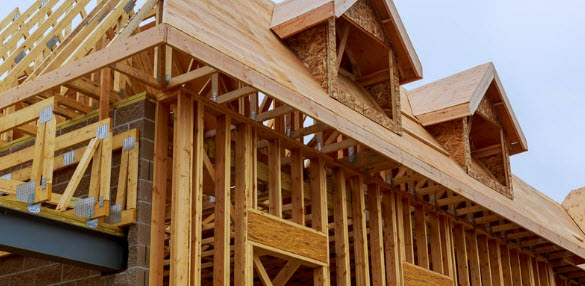Being your own boss is the American dream. You set your own hours, pursue your passion, and build a business from the ground up. But when it comes time to buy a home, that dream can quickly meet the harsh reality of traditional mortgage lending. For the nation’s growing ranks of entrepreneurs, freelancers, and independent contractors, the standard W-2 and paystub verification process simply doesn’t apply.
For years, this has made securing a mortgage a frustrating, uphill battle. Lenders, accustomed to predictable income, have struggled to understand the ebbs and flows of self-employed finances, where tax returns filled with legitimate business deductions can paint a misleading picture of a borrower’s true ability to pay.
But in 2025, the landscape is changing. The rise of the “gig economy” and a surge in entrepreneurship have fueled the growth of a new, more flexible lending ecosystem. Non-QM loans have moved from a niche product to a mainstream necessity, offering a lifeline for millions of self-employed borrowers.
This is your complete guide to navigating the world of self-employed mortgages in 2025. We’ll demystify the requirements, break down the innovative loan products available, and provide a clear, actionable roadmap to getting approved.
The Core Challenge: Proving Your “Real” Income
The fundamental obstacle for self-employed borrowers is the discrepancy between gross income and net taxable income. As a savvy business owner, your goal is to legally minimize your tax burden by writing off business expenses—everything from marketing and software to mileage and a home office. While this is a smart financial strategy, it can significantly lower the adjusted gross income (AGI) on your tax returns.
Traditional mortgage lenders, like those underwriting to Fannie Mae and Freddie Mac standards, are required to use the AGI from your tax returns as your qualifying income. This often results in a loan amount that is far less than what you can comfortably afford based on your actual cash flow.
This is where the new world of mortgages comes in. Lenders in the Non-QM (Non-Qualified Mortgage) space have developed programs specifically designed to look beyond the tax return and evaluate your true financial picture.
The New Toolkit: Alternative Documentation Loans for the Self-Employed
If your tax returns don’t reflect your actual ability to repay a loan, you have powerful options. These programs are the key to unlocking homeownership for the modern entrepreneur.
1. The Bank Statement Loan: Your Cash Flow is Your Credit
The bank statement loan is the most popular and powerful tool for self-employed homebuyers. Instead of tax returns, this program allows you to qualify based on the cash flow demonstrated in your personal or business bank statements.
- How it Works: Lenders will review 12 or 24 months of your bank statements to calculate an average monthly income. They analyze your deposit history to establish a consistent and reliable income figure.
- Income Calculation:
- Personal Bank Statements: Lenders will typically use 100% of the deposits (excluding transfers between accounts) to calculate your average monthly income.
- Business Bank Statements: Because business accounts include expenses, lenders apply an “expense ratio” (usually around 50%, but this can vary by industry) to your total deposits. For example, if your business accounts show an average of $20,000 in monthly deposits, a lender might use $10,000 (a 50% expense ratio) as your qualifying income. Some lenders allow for a lower expense ratio with a letter from your CPA.
- Who It’s For: Business owners, freelancers, and consultants who show consistent, strong revenue through their bank accounts but have significant tax write-offs.
- Typical Requirements (2025):
- Credit Score: Minimum of 620-640, with the best terms for scores over 700.
- Down Payment: Typically 10-20% is required. A larger down payment (20%+) can help you secure better rates.
- Self-Employment History: A minimum of two years of self-employment is standard.
2. The 1099 Mortgage: For the Independent Contractor
Perfect for freelancers, real estate agents, and other professionals who receive Form 1099-NEC from their clients. The 1099 mortgage program allows you to qualify using the gross income reported on your 1099s, rather than the net income after deductions on your Schedule C.
- How it Works: The lender will typically take the total income from your 1099s over the past one to two years and average it to determine your qualifying income. Some lenders may use 90-100% of this gross income.
- Who It’s For: Gig economy workers, independent contractors, and sole proprietors who receive most of their income via 1099s and work for a limited number of clients.
- Typical Requirements (2025):
- Credit Score: Minimum of 620-640.
- Down Payment: Starting at 10%.
- Employment History: At least two years of receiving 1099s is typically required, though some programs may consider one year if you have a prior history in the same field.
3. The Profit & Loss (P&L) Statement Mortgage
For some business owners, particularly those who haven’t filed their most recent year of taxes, a Profit and Loss (P&L) statement mortgage can be an option.
- How it Works: This program uses a P&L statement, often prepared by a licensed CPA or tax professional, to verify your business’s revenue and expenses and determine your net income. This is often used to supplement bank statements or to show that your current year’s income is consistent with previous years.
- Fannie Mae’s View: Even government-sponsored enterprises recognize the value of a P&L. According to Fannie Mae’s selling guide, a lender may use a P&L “to support its determination of the stability or continuance of the borrower’s income.”
- Who It’s For: Business owners with a well-documented financial history who need to prove current income that hasn’t yet been reflected on a filed tax return.
Preparing for Approval: Your Self-Employed Mortgage Checklist
Regardless of which loan program you choose, preparation is key. A well-organized application will make the entire process smoother and faster.
✅ Strengthen Your Credit Profile
- Review Your Credit Report: Check for and dispute any errors.
- Aim High: While you can get approved with scores in the low 600s, a score of 700 or higher will unlock significantly better interest rates and lower down payment requirements.
- Pay Down Debt: Lower your credit utilization and DTI (Debt-to-Income) ratio by paying down credit card balances and other consumer debt.
✅ Organize Your Financial Documents This is where you can truly shine. Having everything in order shows professionalism and makes the underwriter’s job easier.
- Tax Returns: Have the last two years of both personal and business tax returns ready, including all schedules (Schedule C, Schedule E, K-1s, etc.). Even if you’re applying for a bank statement loan, the lender may still want to see these.
- Bank Statements: Gather 12-24 months of statements for all business and personal accounts. Make sure they are clean, with no unexplained large deposits or frequent overdrafts (NSFs).
- Business Registration: Have your business license, articles of incorporation, or a letter from your CPA verifying your self-employment and business start date.
- Profit & Loss Statement: Have a year-to-date P&L ready, even if it’s not the primary way you’re qualifying. It shows the current health of your business.
✅ Separate Your Finances Commingling business and personal funds is a major red flag for underwriters. It makes it difficult to determine your true business revenue and expenses.
- Best Practice: Run your business entirely out of dedicated business checking and credit card accounts. Pay yourself a regular “salary” by transferring funds from your business account to your personal account. This mimics a W-2 income stream and makes your bank statements much easier for a lender to analyze.
FAQs for the Self-Employed Homebuyer
Q: Are interest rates higher for self-employed mortgage loans? A: Yes, typically. Non-QM loans like bank statement or 1099 mortgages are considered slightly higher risk for lenders than a traditional W-2 loan. As a result, the interest rates are often 0.5% to 1.5% higher than a conventional mortgage. However, for a borrower who cannot qualify otherwise, paying a slightly higher rate is a small price for homeownership.
Q: How much of a down payment do I really need? A: While some conventional loans for W-2 borrowers allow for as little as 3% down, self-employed borrowers using alternative documentation should expect to put down at least 10%. A down payment of 20% or more will significantly strengthen your application and help you secure the best possible terms.
Q: Can I get an FHA or VA loan if I’m self-employed? A: Yes! However, FHA and VA loans are government-backed and generally follow traditional underwriting guidelines, meaning they will rely heavily on your tax returns. You will need to show at least two years of self-employment history with stable or increasing income as reported to the IRS. These are not typically options for borrowers whose tax returns don’t support the desired loan amount.
Q: I just started my business last year. Can I get a mortgage? A: This is challenging, but not impossible. Most lenders want to see a two-year history to ensure your business is stable. However, some Non-QM lenders may consider just one year of self-employment history if you can document a strong history of prior employment or success in the same industry.
The Takeaway: Your Path to Homeownership is Clear
Being self-employed in 2025 no longer means putting your homeownership dreams on hold. The mortgage industry has evolved, and lenders now have the tools and flexibility to understand and serve the needs of entrepreneurs.
The key to success is preparation, organization, and finding the right mortgage advisor who understands the nuances of self-employed lending. By strengthening your credit, meticulously organizing your finances, and leveraging powerful products like bank statement and 1099 loans, you can confidently turn your business success into a home of your own.
Ready to explore the mortgage options that are designed for you? Connect with a Home Loan Advisor who specializes in self-employed borrowers today. We can review your unique financial situation and map out your clearest path to approval.



